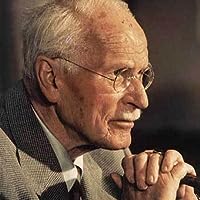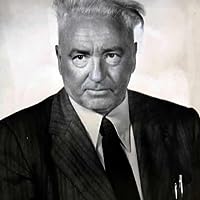Groups Quotes
Quotes tagged as "groups"
Showing 1-30 of 87

“A tribe is a group of people connected to one another, connected to a leader, and connected to an idea. For millions of years, human beings have been part of one tribe or another. A group needs only two things to be a tribe: a shared interest and a way to communicate.”
― Tribes: We Need You to Lead Us
― Tribes: We Need You to Lead Us

“A group experience takes place on a lower level of consciousness than the experience of an individual. This is due to the fact that, when many people gather together to share one common emotion, the total psyche emerging from the group is below the level of the individual psyche. If it is a very large group, the collective psyche will be more like the psyche of an animal, which is the reason why the ethical attitude of large organizations is always doubtful. The psychology of a large crowd inevitably sinks to the level of mob psychology. If, therefore, I have a so-called collective experience as a member of a group, it takes place on a lower level of consciousness than if I had the experience by myself alone.”
― The Archetypes and the Collective Unconscious
― The Archetypes and the Collective Unconscious

“I want you to stop being subhuman and become 'yourself'. 'Yourself,' I say. Not the newspaper you read, not your vicious neighbor's opinion, but 'yourself.' I know, and you don't, what you really are deep down. Deep down, you are what a deer, your God, your poet, or your philosopher is. But you think you're a member of the VFW, your bowling club, or the Ku Klux Klan, and because you think so, you behave as you do. This too was told you long ago, by Heinrich Mann in Germany, by Upton Sinclair and John Dos Passos in the United States. But you recognized neither Mann nor Sinclair. You recognize only the heavyweight champion and Al Capone. If given your choice between a library and a fight, you'll undoubtedly go to the fight.”
― Listen, Little Man!
― Listen, Little Man!

“Clubs, fraternities, nations—these are the beloved barriers in the way of a workable world, these will have to surrender some of their rights and some of their ribs. A ‘fraternity’ is the antithesis of fraternity. The first (that is, the order or organization) is predicated on the idea of exclusion; the second (that is, the abstract thing) is based on a feeling of total equality. Anyone who remembers back to his fraternity days at college recalls the enthusiasts in his group, the rabid members, both young and old, who were obsessed with the mystical charm of membership in their particular order. They were usually men who were incapable of genuine brotherhood, or at least unaware of its implications. Fraternity begins when the exclusion formula is found to be distasteful. The effect of any organization of a social and brotherly nature is to strengthen rather than diminish the lines which divide people into classes; the effects of states and nations is the same, and eventually these lines will have to be softened, these powers will have to be generalized.”
― One Man's Meat
― One Man's Meat

“The tribe often thinks the visionary has turned his back on them. When, in fact, the visionary has simply turned his face to the future.”
―
―

“The fatal misconception behind brainstorming is that there is a particular script we should all follow in group interactions.... [W]hen the composition of the group is right—enough people with different perspectives running into one another in unpredictable ways—the group dynamic will take care of itself. All these errant discussions add up. In fact, they may even be the most essential part of the creative process. Although such conversations will occasionally be unpleasant—not everyone is always in the mood for small talk or criticism—that doesn’t mean that they can be avoided. The most creative spaces are those which hurl us together. It is the human friction that makes the sparks.”
―
―

“Phrases like 'the team spirit' are always employed to cut across individualism, love and personal loyalties.”
― The Prime of Miss Jean Brodie
― The Prime of Miss Jean Brodie

“This teacher was kind and well-intentioned, but I wonder whether students like the young safety officer would be better off if we appreciated that not everyone aspires to be a leader in the conventional sense of the word—that some people wish to fit harmoniously into the group, and others to be independent of it.”
― Quiet: The Power of Introverts in a World That Can't Stop Talking
― Quiet: The Power of Introverts in a World That Can't Stop Talking

“Treason is always a conspiracy; it’s too big a task for one man, and throughout history has been the work of groups.”
― Oath of Fealty
― Oath of Fealty
“By exerting ourselves through unnecessary or irrelevant speech or action, we increase the risk of conflict by a million percent.
By meeting or approaching when it is not necessary or relevant to do so, we increase the risk of increasing the risk by a million percent.
Space cultivates longing, (so) may longing cultivate space. And thus cultivate warmth and peace, enforced by brief interactions [parting ways on positive notes]. Space can be expressed not only in the physical sense.”
―
By meeting or approaching when it is not necessary or relevant to do so, we increase the risk of increasing the risk by a million percent.
Space cultivates longing, (so) may longing cultivate space. And thus cultivate warmth and peace, enforced by brief interactions [parting ways on positive notes]. Space can be expressed not only in the physical sense.”
―
“By exerting ourselves through unnecessary or irrelevant speech or action, we increase the risk of conflict by a million percent.
By meeting or approaching when it is not necessary or relevant to do so, we increase the risk of increasing the risk by a million percent.
Space cultivates longing, (so) may longing cultivate space. And thus cultivate warmth and peace, enforced by brief interactions [parting ways on positive notes]. Space can be expressed not only in the physical sense.
There is a higher purpose.”
―
By meeting or approaching when it is not necessary or relevant to do so, we increase the risk of increasing the risk by a million percent.
Space cultivates longing, (so) may longing cultivate space. And thus cultivate warmth and peace, enforced by brief interactions [parting ways on positive notes]. Space can be expressed not only in the physical sense.
There is a higher purpose.”
―

“Here’s a window onto madness. Our planet is a cosmic madhouse, said Goethe as much as a hundred years and more ago, to which Nietzche, while he was still of sound mind,... added: With individuals madness is rare; but with groups, parties, nations and epochs, it is the rule.”
― EEG
― EEG

“Nobody can plan the actions of even a thousand living persons, separately. Anyone attempting to control millions must divide them into classes, and make a plan applying to these classes.
But these classes do not exist. No two persons are alike. No two are in the same circumstances; no two have the same abilities; beyond getting the barest necessities of life, no two have the same desires.
Therefore the men who try to enforce, in real life, a planned economy that is their theory, come up against the infinite diversity of human beings. The most slavish multitude of men that was ever called "demos" or "labor" or "capital" or "agriculture" or "the masses," actually are men; they are not sheep.
Naturally, by their human nature, they escape in all directions from regulations applying to non-existent classes. It is necessary to increase the number of men who supervise their actions. Then (for officials are human, too) it is necessary that more men supervise the supervisors. Still, individuals will continue to act individually, in ways that they plan. These ways do not fit into Authority's plan. So still more men are needed, imperatively needed, to stop or to supervise these new ways of acting; and more men to supervise these supervisors; and more men to co-ordinate the constantly increasing complexity of all this supervision.
An attempt to exercise a control of individuals that in reality does not exist, must increase in volume.”
―
But these classes do not exist. No two persons are alike. No two are in the same circumstances; no two have the same abilities; beyond getting the barest necessities of life, no two have the same desires.
Therefore the men who try to enforce, in real life, a planned economy that is their theory, come up against the infinite diversity of human beings. The most slavish multitude of men that was ever called "demos" or "labor" or "capital" or "agriculture" or "the masses," actually are men; they are not sheep.
Naturally, by their human nature, they escape in all directions from regulations applying to non-existent classes. It is necessary to increase the number of men who supervise their actions. Then (for officials are human, too) it is necessary that more men supervise the supervisors. Still, individuals will continue to act individually, in ways that they plan. These ways do not fit into Authority's plan. So still more men are needed, imperatively needed, to stop or to supervise these new ways of acting; and more men to supervise these supervisors; and more men to co-ordinate the constantly increasing complexity of all this supervision.
An attempt to exercise a control of individuals that in reality does not exist, must increase in volume.”
―

“The same dynamics that keep us safe in a pack, herd or society, and comfortable in our family, friends or neighbours also serves as a way for pathogenic transmissions. The warmth of a human dwelling or the immense complexity of a bee hive is also an opportunity for a pathogen to tap into a susceptible population. Network interdiction is a comprehensive name for algorithms intended to disrupt such connections.”
― Computational Modeling of Infectious Disease: With Applications in Python
― Computational Modeling of Infectious Disease: With Applications in Python

“Faced with their confused glances and naive questions, I saw that there indeed was, between the writers and that public, however benevolent and sympathetic, a visible barrier. The audience simply did not have enough background information to comprehend what the writers sitting in front of them on the podium were saying.
Confronted with such a lack of understanding, I felt that I had no other choice but to hang on to 'my' group, the writers from Eastern Europe. At least they knew what I was talking about; at least we understood each other's problems, if that was of any comfort to a single one of us. And in any case, even if I had loudly screamed that I didn't want to belong to any group at all, the audience would have put me with them. Perhaps for the first time I became aware of how tired I was of constantly being pushed back into 'my place' every time I made an attempt to break out of it.”
― Café Europa: Life After Communism
Confronted with such a lack of understanding, I felt that I had no other choice but to hang on to 'my' group, the writers from Eastern Europe. At least they knew what I was talking about; at least we understood each other's problems, if that was of any comfort to a single one of us. And in any case, even if I had loudly screamed that I didn't want to belong to any group at all, the audience would have put me with them. Perhaps for the first time I became aware of how tired I was of constantly being pushed back into 'my place' every time I made an attempt to break out of it.”
― Café Europa: Life After Communism
“Solidarity is great for a group that needs to work in unison or march into battle. Solidarity engenders trust, teamwork, and mutual aid. But it can also foster groupthink, orthodoxy, and a paralyzing fear of challenging the collective. Solidarity can interfere with a group's efforts to find the truth”
― The Coddling of the American Mind: How Good Intentions and Bad Ideas Are Setting Up a Generation for Failure
― The Coddling of the American Mind: How Good Intentions and Bad Ideas Are Setting Up a Generation for Failure
“Throughout human evolution, successful religious systems have provided a mechanism for resolving collective action problems by engendering social cooperation, reducing in-group reactive aggression, and optimizing out-group proactive aggression.”
― Evolutionary Perspectives on Religion and Violence
― Evolutionary Perspectives on Religion and Violence
“Religion facilitates terrorists' goals by providing moral legitimacy to their cause, as well.”
― Evolutionary Perspectives on Religion and Violence
― Evolutionary Perspectives on Religion and Violence
“All contemporary world religions impose a moral framework upon their adherents, thereby enabling terrorists to present their conflicts in morally absolute dichotomies, such as good versus bad or righteous versus evil. While legitimizing one's own cause, religions are particularly effective at demonizing those with opposing views. The history of religion is replete with examples in which in-group passions are aroused and out-group hatreds are dangerously ingnited.”
― Evolutionary Perspectives on Religion and Violence
― Evolutionary Perspectives on Religion and Violence
“The use of religion to transform local power struggles into cosmic conflicts benefits terrorist groups who may otherwise be viewed as economically and politically self-serving.”
― Evolutionary Perspectives on Religion and Violence
― Evolutionary Perspectives on Religion and Violence
“Just as violence constitutes a very effective proximate mechanism of religion; religion serves as an excellent proximate mechanism for violence, as well.”
― Evolutionary Perspectives on Religion and Violence
― Evolutionary Perspectives on Religion and Violence
“The ability of ritual to evoke both positive and negative affect is, of course, not specific to religion. Secular dances, concerts, and -raves- induce feelings of happiness and joy, and military boot camp elicits pain, shock, and awe. Such secular experiences have strong emotional impacts on participants also, particularly during adolescence.”
― Evolutionary Perspectives on Religion and Violence
― Evolutionary Perspectives on Religion and Violence

“A “bubble culture” develops whereby corporate types associate with other corporate types in corporate suburbs. The artists flee to their own enclaves. This process culminates in the self-imposed ghetto, a system whereby suburbs are defined and characterised by the people who live there.”
― Us vs Them: A Case for Social Empathy
― Us vs Them: A Case for Social Empathy

“Apparently, if you look at how many numbers we're likely to store in our mobile phone, or how many names we're likely to list on a social networking site, it's rare even for city dwellers to exceed a couple of hundred. Social anthropologists delightedly point out that this is the size of the social group we would have had to handle in a large Stone Age village. According to them, we're all trying to cope with modern big-city life equipped only with a Stone Age social brain. We all struggle with anonymity.”
― A History of the World in 100 Objects
― A History of the World in 100 Objects
All Quotes
|
My Quotes
|
Add A Quote
Browse By Tag
- Love Quotes 97k
- Life Quotes 75.5k
- Inspirational Quotes 72.5k
- Humor Quotes 43.5k
- Philosophy Quotes 29.5k
- Inspirational Quotes Quotes 27k
- God Quotes 26k
- Truth Quotes 23.5k
- Wisdom Quotes 23.5k
- Romance Quotes 23k
- Poetry Quotes 22k
- Death Quotes 20k
- Happiness Quotes 18.5k
- Life Lessons Quotes 18.5k
- Hope Quotes 18k
- Faith Quotes 18k
- Quotes Quotes 16.5k
- Inspiration Quotes 16.5k
- Spirituality Quotes 15k
- Religion Quotes 15k
- Motivational Quotes 15k
- Writing Quotes 14.5k
- Relationships Quotes 14.5k
- Life Quotes Quotes 14k
- Love Quotes Quotes 13.5k
- Success Quotes 13.5k
- Time Quotes 12.5k
- Motivation Quotes 12k
- Science Quotes 11.5k
- Knowledge Quotes 11k





